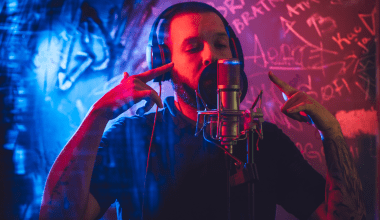A royalty deal can be your golden ticket to building a steady income while focusing on your creative passion. It allows creators—be it musicians, writers, artists, or entrepreneurs—to earn from their intellectual property without upfront payments. In this blog, we’ll dive into the essence of royalty deals, how they work, and why they’re an essential part of any creative’s journey.
Whether you’re a musician looking to sell your music on Beatport or a business owner licensing an innovative product, the right royalty deal can set you up for long-term success. Here’s everything you need to know.
What is a Royalty Deal?
A royalty deal is a financial agreement where one party licenses their work or intellectual property (IP) to another party in exchange for a percentage of revenue generated from that work. Instead of receiving a one-time payment, creators earn recurring income as their work continues to sell or generate use over time.
Key Elements of a Royalty Deal
- Intellectual Property (IP): This can include music, books, inventions, or even brand names.
- Licensor and Licensee: The licensor owns the IP, while the licensee gets the right to use it.
- Royalty Percentage: This is the agreed-upon share of revenue the licensor earns.
- Term and Territory: Specifies how long the deal lasts and where it applies.
This arrangement is highly beneficial for creators, as it offers a sustainable income model that grows with the success of their work.
How Does a Royalty Deal Work?
When you sign a royalty deal, you grant specific rights to a licensee. They may produce, distribute, or use your IP in exchange for a share of the profits. For example, if you’re a musician, a royalty deal might involve earning a percentage of sales when you sell your music on Beatport or other platforms.
Example: Music Royalty Deals
In the music industry, artists often sign deals with record labels or distributors. The label invests in marketing and distribution, while the artist earns royalties based on sales, streams, or licensing agreements.
- Mechanical Royalties: Earned from physical or digital reproductions of songs.
- Performance Royalties: Earned when music is played publicly, like on the radio or live events.
- Sync Royalties: Earned when music is used in films, ads, or video games.
By structuring a clear royalty deal, you ensure that your work continues to bring financial returns for years to come.
Benefits of a Royalty Deal
Royalty deals offer advantages that make them popular across various industries:
1. Passive Income
Earning royalties means you get paid continuously for your work. Even long after the initial effort, your music, book, or invention can generate revenue.
Since the licensee often handles production, marketing, or distribution, the creator shares financial risks. For instance, a record label investing in promoting your music reduces your upfront costs.
3. Long-Term Value
A well-negotiated royalty deal allows creators to build wealth over time, ensuring their IP continues to pay off. Imagine an inventor earning a percentage from every unit of their patented product sold worldwide.
Types of Royalty Deals Across Industries
Royalty deals aren’t just for artists. Here’s how they work in different sectors:
1. Publishing Industry
Authors often sign deals where publishers handle editing, printing, and distribution. In return, authors earn a percentage of book sales.
2. Technology and Patents
Innovators license patents to companies that manufacture and sell their inventions. This approach is common in tech and pharmaceuticals.
3. Franchising
Businesses license their brand and operations model to franchisees in exchange for royalties. For example, fast-food giants earn a percentage of franchise revenue.
Tips for Negotiating a Strong Royalty Deal
Signing a royalty deal is exciting, but it’s crucial to understand every detail before committing.
1. Understand Your Rights
Clearly define what rights you’re granting and what you’re retaining. For example, selling exclusive rights to your music might limit future opportunities.
2. Research Industry Standards
Royalty percentages vary by industry. Musicians might earn 10-15% of revenue, while inventors may negotiate higher rates.
3. Set Transparent Terms
Ensure the agreement specifies payment timelines, reporting requirements, and audit rights. Transparency protects both parties.
Royalty Deals in the Digital Era
The internet has revolutionized how creators monetize their work. Platforms like Beatport, Spotify, and Amazon have opened doors for independent artists and writers to earn royalties directly.
- Streaming Services: Musicians earn royalties based on streams, while writers earn from eBook sales.
- Extended Plays (EPs): Artists use EPs to test the market and earn royalties from digital sales.
- Self-Publishing Platforms: Authors can sell directly to readers while retaining a larger share of royalties.
The shift to digital has empowered creators to take charge of their careers.
Challenges of Royalty Deals
While royalty deals are rewarding, they aren’t without challenges:
- Complex Agreements: Legal jargon can be overwhelming. Always consult an expert before signing.
- Payment Delays: Royalties often take months to process. Ensure the agreement includes clear payment timelines.
- Market Risks: Revenue depends on market demand. If a product underperforms, royalties will be lower.
Understanding these hurdles will help you navigate the process more effectively.
Conclusion: Is a Royalty Deal Right for You?
A royalty deal can be life-changing for creators looking to turn their passion into a reliable income source. Whether you’re a musician aiming to sell your music on Beatport or a business owner licensing your innovation, this financial arrangement offers growth, flexibility, and long-term rewards.
By understanding how royalty deals work, negotiating smartly, and leveraging digital platforms, you can secure a bright future for your creative work. Always remember to seek professional advice and stay informed about industry trends to maximize your benefits.
For further reading, explore these related articles:
For additional resources on music marketing and distribution, visit DMT Records Private Limited.






